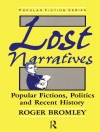In ’Appreciations and Criticisms of the Works of Charles Dickens, ’ G.K. Chesterton delivers a masterful exploration of Dickens’s literary landscape, dissecting the emotional depth and social commentary embedded in his narratives. Chesterton employs a blend of affectionate appreciation and critical analysis, capturing Dickens’s ability to blend whimsical characters with stark societal critique. Written during the early twentieth century, Chesterton’s work mirroring the ebb of Victorian values, underscores the enduring relevance of Dickens’s themes of social justice and human compassion. His eloquent prose and sharp wit invite readers to reconsider not just the stories themselves, but the larger moral messages that underscore them. Gilbert Keith Chesterton, a prominent literary figure and a contemporary of Dickens’s later works, was a fervent advocate for the Great Man theory of history and believed in the intrinsic value of storytelling. His deep engagement with the social and philosophical questions of his time, often reflecting his Christian orthodoxy, shaped his perspectives on literature. Dark Times, marked by the industrial revolution’s challenges, influenced Chesterton’s critical prism through which he viewed Dickens’s portrayal of the struggles of the common man. This work is highly recommended for both Dickens aficionados and newcomers to his universe. Chesterton’s insights not only illuminate the genius of Dickens but also provoke thoughtful reflection on contemporary social issues. Engage with this critical examination to gain a deeper appreciation of Dickens’s lasting impact on literature and society.
Om författaren
Gilbert Keith Chesterton (1874–1936) was an eminent English writer, poet, philosopher, dramatist, journalist, orator, literary and art critic, biographer, and Christian apologist. Known for his penetrating wit and clever paradoxes, Chesterton is often referred to as the ’prince of paradox’. He wrote around 80 books, several hundred poems, some 200 short stories, 4000 essays, and several plays. His writing style combined the narrative drive of adventure literature with spirited rhetorical dialogue, often employing analogies and allegories to tackle serious debates in a manner both thought-provoking and accessible. Notable among his works is ’Appreciations and Criticisms of the Works of Charles Dickens’ (1911), a collection of analytical essays that explore the style and themes of Dickens’s works, celebrating the enduring value of his literary output while also offering insightful critique. Chesterton’s writings are characterized by their incisive critique of modernity and materialism, paired with a hearty appreciation for the fantastical and metaphysical. He remains a significant figure in the English literary canon for his contribution to Christian apologetics, most famously in ’Orthodoxy’ (1908) and ’The Everlasting Man’ (1925). His famed fictional character, Father Brown, became the protagonist of a series of detective stories that showcase Chesterton’s belief in rationality and spirituality. Chesterton’s influence extends into various literary circles, and his work continues to inspire readers with its wit, wisdom, and timeless appeal.












